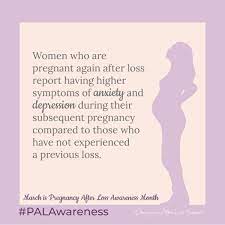TW – Baby Loss
Pregnancy After Loss
If you’re experiencing pregnancy after loss, you may find it impossible to think of it as a happy time that will result in a healthy baby. Instead, it could trigger a fresh wave of grief and become a very anxious period full of fear and worry. I’m here to remind you it’s OK to find this hard. You may need extra help and reassurance to manage your emotions.
Your Loss Counts
When we’re struggling, we often compare ourselves and our experiences to those of other people. We use this to gauge what action we should take and how deserving we are of support. But trauma is not a competition. Just because someone has it ‘worse’, it doesn’t mean your pain isn’t valid. It doesn’t mean you don’t deserve help.
Sadly, pregnancy and baby loss has a number of different forms, all of which can impact your mental health and lead to overwhelming emotions in subsequent pregnancies.
Types of Loss
- Miscarriage at any stage of pregnancy
- Missed miscarriage
- Molar pregnancy
- Chemical pregnancy
- Stillbirth
- Infant death
- Termination for medical reasons
Symptoms of Anxiety in Pregnancy After Loss
Understandably, many parents describe pregnancy after loss as a difficult and very anxious time. It’s understandable to be afraid you might lose another baby or find it hard to imagine taking a live baby home. But you may need support if you’re finding your anxiety difficult to manage and struggling to cope day-to-day. This might look like:
- Excessive worrying about the pregnancy and the baby
- Imagining bad things happening in the pregnancy and to the baby
- Excessive worrying about movements
- Excessive urge for extra reassurance scans
- Calling your midwife/Antenatal Day Assessment Unit/labour ward a lot.
- Frequently checking for blood or signs of a miscarriage
- Inability to relax in the pregnancy
- Excessive googling/checking the internet
- Not talking about the pregnancy or your previous loss, avoiding thinking about it
How to Manage Anxiety After Loss
Start by talking to your GP, consultant or midwife. You may be able to have some counselling or talk to someone about coping strategies. Your midwife may also be able to refer you to a mental health specialist midwife who can offer additional specialist support.
Reach out for support elsewhere too. This may be from a friend or relative, an organisation like the ones listed in the resource section below, or from an experienced therapist like myself who specialises in holding and emotionally supporting mums and mums-to-be.
Devise some positive coping statements. Things like ‘today I am pregnant’, ‘today, my pregnancy is progressing well’ and ‘there are no causes for concern at the moment’. This can help you feel calmer as you focus on the facts, rather than negative thoughts that are biased and based on anxiety.
Try to remain sociable. You may not feel like doing things you enjoy due to anxiety but being around other people, keeping active and doing things you love will maintain your quality of life and hopefully give you a break from the worries about your pregnancy and the baby.
Watch out for excessive checking. Sometimes, checking can make you feel worse because checking means you are more focused on what you are worried about, giving it more meaning and power. Learning to tolerate a little uncertainty will help you feel less worried overall.
Don’t forget to check in with your partner too. People often focus on the person who carried the baby, but partners have also experienced a devastating loss and may need extra support.
Be Kind to Yourself
Remember, you have been through a traumatic experience. It’s natural to feel overwhelmed by emotions and anxiety. Getting extra support and help with this can make a big difference.
Get the Help You Need
If you’re struggling with anxiety after loss, I can help. Reach out for support by booking a consultation here or subscribe to The Nurture Toolkit for free, actionable tips and prompts straight to your inbox. I also share lots of encouragement and support via Instagram.
